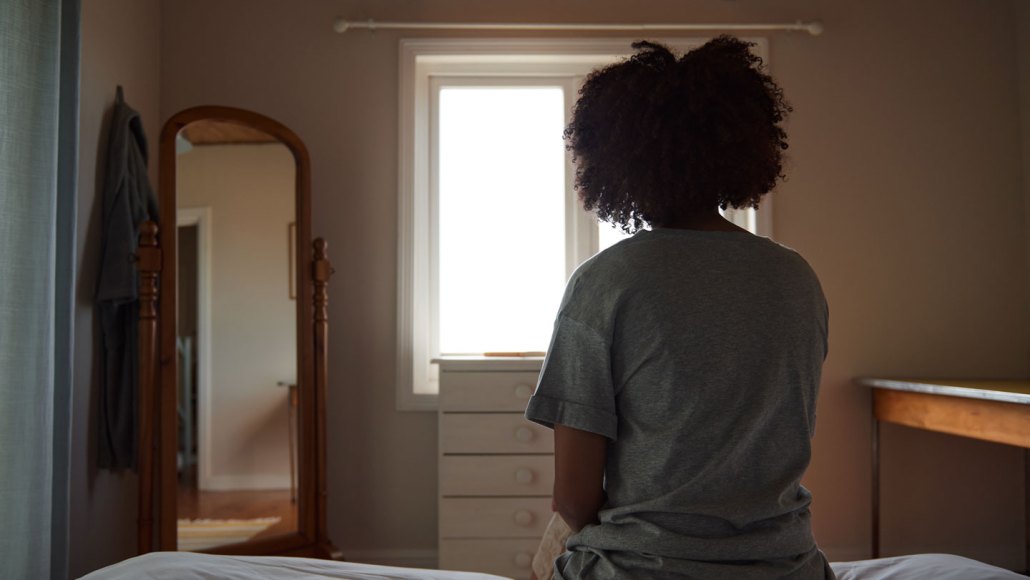U.S. moms say their mental health is getting worse
The troubling trend started before the COVID-19 pandemic

U.S. moms of kids ages 0 to 17 reported declining mental health from 2016 to 2023, according to a nationally representative survey.
Mavocado/Getty Images
U.S. moms raising babies, children and teens report worsening mental health, a trend that began before the COVID-19 pandemic.
A nationally representative survey queried households with children ranging from 0 to 17 years of age. From 2016 to 2023, the percentage of the close to 200,000 mothers in the study sample who reported excellent mental health dropped from 38 to 26 percent. Meanwhile, the share of moms reporting the lowest rating, fair or poor mental health, rose from 5.5 to 8.5 percent, researchers reported May 27 in JAMA Internal Medicine.
During the perinatal period — the time surrounding childbirth — the risk for developing mental health disorders increases for moms. “Mental health conditions are actually a leading component of maternal morbidity and mortality,” says Kara Zivin, a health policy researcher at the University of Michigan in Ann Arbor. In 2020, at 22.5 percent, mental health conditions topped the list of causes of pregnancy-related deaths up to one year post-partum, according to data from more than 500 such deaths in 38 states.
But the national maternal mortality rate, about 19 deaths per 100,000 live births in 2023, excludes deaths due to mental health conditions and only extends to 42 days post-partum. The United States has the highest rate of maternal mortality among high-income countries.
Depression during pregnancy puts the mother at risk for the disorder after the baby is born, says Karen Tabb Dina, a perinatal social work researcher at the University of Illinois Urbana-Champaign. “It’s not like you have a baby and you flip the switch and oh, everything is done, depression is gone.”
And after birth, many moms experiencing mental health symptoms don’t necessarily get diagnosed, many who get diagnosed don’t necessarily get treated and many who get treated may not get effective treatment, Zivin says. “It’s not necessarily surprising that there are struggles with mental health that are persisting.”
One evidence-based program to support moms’ health after birth involves home visits, Tabb Dina says. The Maternal, Infant and Early Childhood Home Visiting Program, administered by the Health Resources and Services Administration, assists families that have young children and are at risk for maternal and child health harms. Among the services provided are mental health screenings and care referrals for parents. “We need a HRSA in order for this to happen,” Tabb Dina says. That agency, part of the U.S. Department of Health and Human Services, has been targeted for reorganization and job cuts by the Trump Administration.
Another key support for maternal health in the United States is the government-sponsored health insurance program Medicaid, which covers about 4 in 10 births. Nearly every state has expanded Medicaid postpartum coverage from 60 days after birth to a full year. Republican members of Congress are proposing massive cuts to the program. Zivin is concerned about potential changes to Medicaid and what that could mean for mothers covered by the program.
For the new study on the mental health of U.S. moms, researchers analyzed data from the annual National Survey of Children’s Health, which asks about children’s and caregivers’ health. The study sample included female biological or adoptive parents who rated their mental health on a four-point scale. Self-reported measures are important for uncovering mental health problems that may not have been diagnosed, Tabb Dina says. The decline in excellent mental health occurred as good mental health rose from 19 to 26 percent.
The study wasn’t designed to look at the reasons why moms report worsening mental health. “Women have so many competing demands: of family, of work, lack of universal childcare, lack of parental leave, economic conditions. There are so many pressures on families,” Zivin says. But more work is needed to understand what has contributed to the trend the study reports, such as whether demands on families have changed over time and the effect of growing awareness of mental health issues, she says.
Mental health disorders can put both moms’ and children’s health at risk. But Zivin says the message shouldn’t be that if a mom has a mental health condition “then your child is doomed to have a bad life. I think that’s where early intervention and appropriate intervention is important.” And going forward, “to not lose sight of the mother just because she’s not pregnant anymore.”







